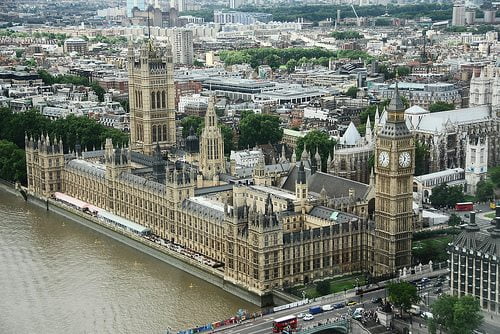

Features
The lobbying bill is a threat to democratic debate. It must not pass
The pithily titled Transparency of Lobbying, Non-Party Campaigning and Trade Union Administration bill sees the coalition government attempting to silence perceived and actual criticism during general election years. Oh, and address lobbying scandals, of course.
Under the bill those who are paid to lobby ministers and senior civil servants over legislation, policy or government contracts, on behalf of a third party, are required to register and disclose who they are working for on a quarterly basis. Failing to do so would lead to significant fines. So far, so good.
However, if you lobby MPs, junior civil servants or special advisers (spads), you need not register, leaving a massive hole in the Bill’s provisions. Why talk to the organ grinder, when the monkey will do (and will talk to the organ grinder on your behalf)?
Bizarrely if you are an in-house lobbyist of a company, as opposed to a lobbying firm working on behalf of a company, then you do not need to register. The Association of Professional Political Consultants (the lobbyist’s trade union) suggest the Bill will only cover 1% of lobbyists. Many ‘lobbying’ firms can easily define themselves more broadly, negating their requirement to register.
Where the bill is most pernicious is in capping the spend of non-political party organisations during general election years, effectively silencing actual or perceived criticism of government policy by charities and citizen pressure groups such as 38 Degrees. Political parties funded by private, often corporate money, can spend freely (£31.5m at the last election). Newspapers, with their non-partisan approach, remain free to back whichever party promotes their own corporate media interests.
Defenders of the bill argue that this will prevent the importing of US-style Political Action Committees (PACs), which have allowed US democracy to be captured by wealthy interest, but this is already prevented by existing legislation.
Currently, if during a general election, you spend £10,000 or more in England and £5,000 in Scotland or Wales, you must register with the Electoral Commission. This will fall to £5,000 and £2,000 respectively. Those registered can currently spend £989,000 but this will fall to £390,000. That spend now includes staff costs, market research and meetings, thus making the cut far greater than the headline figure suggests.
Thus you could have a situation where the BNP could spend millions at an election, but Hope not Hate, an organisation that attempts to prevent political racism, could only spend £390,000.
As for corporate funding for political parties and corporate lobbying between elections, this bill does nothing. After the US, we will still have the best democracy money can buy.
Parties reject state funding out of hand, as the people ‘wouldn’t stomach it’. Rarely do they ask the people as they probably wouldn’t like the answer they got. The question is not simply whether you want state funding of parties, but whether you think the current system of union, corporate and wealthy individual funding works in the best interests of the average citizen.
This Bill addresses none of these systemic issues.
So, as Sir Stephen Bubb of the charity leaders’ network ACEVO, wrote in today’s Times, “If Cancer Research UK complained before the general election about the Government dropping plain cigarette packaging, they might be punished for unwittingly helping the Opposition. But if tobacco companies lobbied for policies that increased their profits, under this Bill the public would not even be told.”
Conservative MP, John Redwood, wrote on his blog that he was the chief lobbyist for his constituents and that there was nothing inherently wrong with lobbying per se. “As with all walks of life, there will be on occasions bad lobbyists who break existing conventions and laws, and who doubtless will break any new law as well if they think they can get away with it to advantage. Democratic politics cannot survive without lots of good and well informed lobbying. Another way of describing that is “democratic debate”.”
Lobbying was and is the next big scandal in politics, as David Cameron correctly asserted. Badly written and hastily passed legislation will do nothing to prevent an impending scandal.
The right of companies, campaigners, unions, charities and citizens to lobby is an invaluable part of our democracy. Many paid lobbyists help individuals and organisations navigate the archaic rules and practices of Westminster. Lobbying is an essential conduit for both legislators and citizens. As in so many areas of life, it is transparency and openness that we need, not further restrictions on our involvement in democratic debate.
MPs on all sides of the house should not let this bill pass.


 Environment12 months ago
Environment12 months agoAre Polymer Banknotes: an Eco-Friendly Trend or a Groundswell?

 Features11 months ago
Features11 months agoEco-Friendly Cryptocurrencies: Sustainable Investment Choices

 Features12 months ago
Features12 months agoEco-Friendly Crypto Traders Must Find the Right Exchange

 Energy11 months ago
Energy11 months agoThe Growing Role of Solar Panels in Ireland’s Energy Future




























